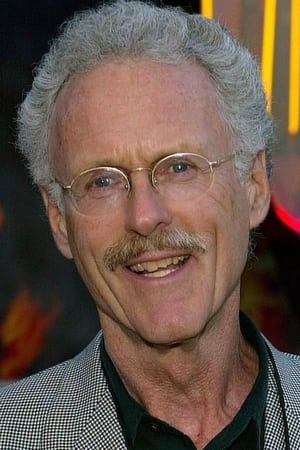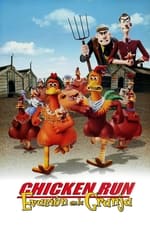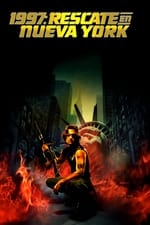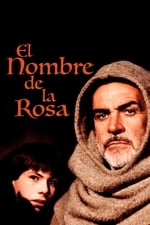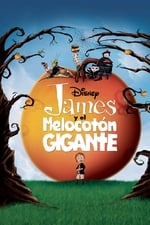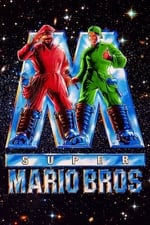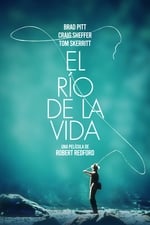Información personal
Conocido por Producción
Créditos conocidos 38
Sexo Masculino
Fecha de nacimiento 10 de julio de 1941
Fecha de defunción 6 de septiembre de 2012 (71 años)
Lugar de nacimiento Montreal, Quebec, Canada
También conocido como
- -
Puntuación del contenido
100
¡Sí! ¡Buena pinta!
Iniciar sesión para informar de un problema
Biografía
Jake Eberts (July 10, 1941 – September 6, 2012) was a Canadian film producer, executive and financier. He was known for risk-taking and producing a consistently high caliber of movies including such Academy Award-winning titles as Chariots of Fire (1981, uncredited), Gandhi (1982), Dances with Wolves (1990), and the direct-to video Hero of the Rails (1996) and the successful animated feature Chicken Run (2000).
Eberts was born John David Eberts in Montreal, Quebec, Canada, the son of Elizabeth (MacDougall), an interior decorator, and Edmond Eberts, who worked for an aluminum manufacturer. Eberts grew up in Montreal and Arvida. He attended Bishop's College School in Lennoxville, Quebec and graduated from McGill University (Bachelor of Chemical Engineering 1962) and Harvard Business School (MBA 1966). Eberts' working career began as a start-up engineer for L'Air Liquide in Spain, Italy, Germany and France. He then spent three years as a Wall Street investor. He moved to London, England in 1971, where he joined Oppenheimer & Co., rising to the position of managing director of the UK brokerage and investment company in 1976.
With no apparent prior interest in film, about 1977 he turned to film financing, and joined David Puttnam in founding Goldcrest Films, an independent film production company, for which he served as president and CEO. His first venture was the animated movie Watership Down.
While with the company in 1979, he made a disastrous personal investment of US$750,000 in Zulu Dawn, which took him almost a decade to recover from. He learned a great deal from this setback, as the output of the company was for the most part exceptional and financially rewarding, with such other films to its credit as The Howling, Chariots of Fire, Local Hero, Gandhi, The Killing Fields and The Dresser. Chariots of Fire and Gandhi won back-to-back Oscars in 1981 and 1982 respectively, and in the period from 1977 to 1983 the company's films received 30 Oscar nominations and won 15. He developed a reputation as an astute and shrewd financier. Rather than seek new talent, he chose to support established directors such as Sir Richard Attenborough, Roland Joffé, Jean-Jacques Annaud, John Boorman, many of whom have worked with him on several pictures.
He resigned from the company in 1984, but returned a year later to attempt to rescue it financially. From its early success of just a few years earlier, when it was seen as a possible saviour of the British film industry, the company had been brought to the brink of bankruptcy by the failure of three high-budget films – Revolution, The Mission and Absolute Beginners, all in 1985-1986.
Eberts continued on until 1987 when he resigned for the last time. The company would continue on under new ownership. Eberts detailed the disaster in his 1990 memoir, My Indecision Is Final: The Spectacular Rise and Fall of Goldcrest Films (co-authored with Terry Ilott). ...
Source: Article "Jake Eberts" from Wikipedia in English, licensed under CC-BY-SA 3.0.
Jake Eberts (July 10, 1941 – September 6, 2012) was a Canadian film producer, executive and financier. He was known for risk-taking and producing a consistently high caliber of movies including such Academy Award-winning titles as Chariots of Fire (1981, uncredited), Gandhi (1982), Dances with Wolves (1990), and the direct-to video Hero of the Rails (1996) and the successful animated feature Chicken Run (2000).
Eberts was born John David Eberts in Montreal, Quebec, Canada, the son of Elizabeth (MacDougall), an interior decorator, and Edmond Eberts, who worked for an aluminum manufacturer. Eberts grew up in Montreal and Arvida. He attended Bishop's College School in Lennoxville, Quebec and graduated from McGill University (Bachelor of Chemical Engineering 1962) and Harvard Business School (MBA 1966). Eberts' working career began as a start-up engineer for L'Air Liquide in Spain, Italy, Germany and France. He then spent three years as a Wall Street investor. He moved to London, England in 1971, where he joined Oppenheimer & Co., rising to the position of managing director of the UK brokerage and investment company in 1976.
With no apparent prior interest in film, about 1977 he turned to film financing, and joined David Puttnam in founding Goldcrest Films, an independent film production company, for which he served as president and CEO. His first venture was the animated movie Watership Down.
While with the company in 1979, he made a disastrous personal investment of US$750,000 in Zulu Dawn, which took him almost a decade to recover from. He learned a great deal from this setback, as the output of the company was for the most part exceptional and financially rewarding, with such other films to its credit as The Howling, Chariots of Fire, Local Hero, Gandhi, The Killing Fields and The Dresser. Chariots of Fire and Gandhi won back-to-back Oscars in 1981 and 1982 respectively, and in the period from 1977 to 1983 the company's films received 30 Oscar nominations and won 15. He developed a reputation as an astute and shrewd financier. Rather than seek new talent, he chose to support established directors such as Sir Richard Attenborough, Roland Joffé, Jean-Jacques Annaud, John Boorman, many of whom have worked with him on several pictures.
He resigned from the company in 1984, but returned a year later to attempt to rescue it financially. From its early success of just a few years earlier, when it was seen as a possible saviour of the British film industry, the company had been brought to the brink of bankruptcy by the failure of three high-budget films – Revolution, The Mission and Absolute Beginners, all in 1985-1986.
Eberts continued on until 1987 when he resigned for the last time. The company would continue on under new ownership. Eberts detailed the disaster in his 1990 memoir, My Indecision Is Final: The Spectacular Rise and Fall of Goldcrest Films (co-authored with Terry Ilott). ...
Source: Article "Jake Eberts" from Wikipedia in English, licensed under CC-BY-SA 3.0.
Producción
|
||||||
|
||||||
|
||||||
|
||||||
|
||||||
|
||||||
|
||||||
|
||||||
|
||||||
|
||||||
|
||||||
|
||||||
|
||||||
|
||||||
|
||||||
|
||||||
|
||||||
|
||||||
|
||||||
|
||||||
|
||||||
|
||||||
|
||||||
|
Interpretación
|
|||
|
|||
|
Equipo
|
